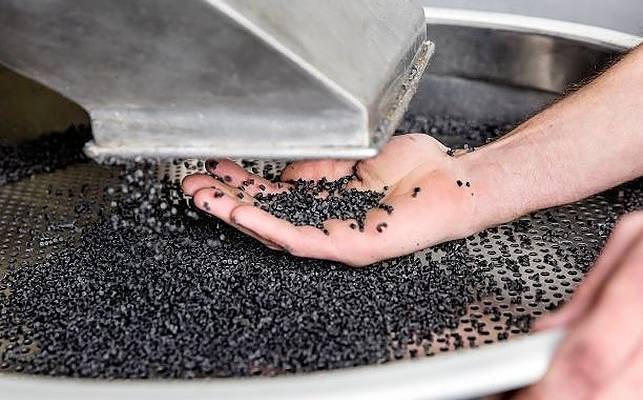By processing the trash, UBQ prevents the emission of methane, groundwater leakage and other environmental damage.
By TPS
Motherson Group, a globally operating supplier providing full system solutions to the automotive industry, announced its collaboration with Israeli cleantech company UBQ Materials.
UBQ Materials is an Israeli company based in Kibbutz Tseelim in the Negev which has developed a process to convert unsorted household waste into a plastic substitute that can be made into everyday goods.
The 100% unsorted household waste contains food leftovers, mixed plastics, paper, cardboard, packaging materials and diapers. The unsorted waste is reduced to its most basic natural components and then reassembled and bound together into a matrix, creating a novel climate-positive material with applications across industries.
The companies are joining efforts to implement the carbon-negative UBQ thermoplastic into auto parts manufactured by Motherson Group for the automotive industry.
By processing the trash, UBQ prevents the emission of methane, groundwater leakage and other environmental damage. Every ton of UBQ produced prevents 11.7 tons of CO2-eq from polluting the environment, leading Life Cycle Assessment auditors Quantis to designate UBQ as “the Most Climate Positive Thermoplastic Material on the Market.”
In February 2020, UBQ Materials embarked on its first partnership in the automotive industry with Daimler, manufacturer of Mercedes Benz. Following the successful progress, UBQ Materials was introduced to Motherson.
Motherson selected UBQ Materials as an innovation partner in Plug and Play’s Startup Autobahn, a platform that connects emerging technologies to pilot opportunities with multinational corporations.
Motherson, an Indo-Japanese partnership, is India’s largest manufacturer of spare parts and a world leader with sales of $9 billion a year. The company has factories in 41 countries that manufacture a variety of spare parts for vehicles, including mirrors, electric cables and more.
According to the agreement, the Israeli raw material will be incorporated into the company’s products as a substitute for plastic to reduce the carbon footprint in the production processes.


No comments:
Post a Comment